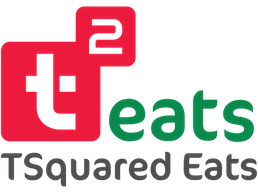The Modern Professional’s Nutrition Challenge
In today’s fast-paced world, professionals in Singapore face relentless demands on their time and energy: early mornings, long workdays, meetings, travel, and social commitments. Amid this, nutrition often becomes reactive, skipping meals, grabbing convenience foods, or defaulting to delivery options that prioritise speed over quality.
Yet the irony is clear: optimal nutrition is not a luxury for busy professionals; it’s a necessity for maintaining energy, focus, resilience, and long-term health. Poor nutrition habits don’t just undermine physical well-being; they affect cognitive performance, mood stability, immune resilience, and recovery from stress.
At TSquared, we believe that meal planning is the solution, not simply cooking in advance, but developing systems that ensure food choices remain aligned with your health and performance goals, regardless of how hectic life becomes.
Why Meal Planning Works: Science and Structure

Meal planning isn’t about rigid control or culinary perfection. It’s about removing decision fatigue, reducing reliance on last-minute choices, and ensuring that meals consistently nourish rather than deplete.
Studies in behavioural psychology show that when food choices are left to chance during busy days, people tend to opt for highly processed, calorie-dense, nutrient-poor options. Decision fatigue, the mental exhaustion from constant choices, reduces dietary discipline by the end of the day.
In contrast, planned meals improve adherence to health goals, reduce unnecessary snacking, and ensure better control over calorie, macronutrient, and micronutrient intake. This predictability supports not only body composition goals but also stabilises blood sugar, improves energy levels, and protects cognitive performance throughout the workday.
The Key Principles of Meal Planning for Professionals

Meal planning must respect the reality of a busy professional’s lifestyle: variable schedules, work travel, social engagements, and competing priorities. The key is flexibility paired with structure.
First, every meal should deliver balance, protein for satiety and muscle support, complex carbohydrates for sustained energy, fibre for digestive health, and healthy fats for cellular and hormonal function. Convenience meals often lack this balance, resulting in energy crashes, cravings, or poor recovery from training.
Second, portion control matters. Even nutrient-dense foods can derail goals if eaten mindlessly or in excess. Pre-portioning meals helps avoid overeating while providing visual and behavioural cues that promote appropriate intake.
Third, timing must be practical. Meal planning allows you to structure meals around natural work rhythms: an energising breakfast, a satiating lunch that prevents mid-afternoon crashes, and a lighter evening meal that supports digestion and sleep quality.
The Cost of Not Planning

Without structure, busy professionals often fall into two camps: skipping meals entirely and relying on caffeine to compensate, or overeating rich, calorie-dense foods at irregular hours. Both patterns carry health risks: reduced metabolic efficiency, poor blood sugar control, increased stress hormone production, disrupted sleep, and higher rates of body fat gain over time.
The cumulative effect is not just weight gain but reduced vitality, slower thinking, reduced energy, more frequent illness, and ultimately reduced work performance.
This is why meal planning isn’t about aesthetics alone; it’s a core strategy for maintaining high-functioning energy and cognitive clarity.
Tailoring Meal Planning to Individual Needs

Not every professional has the same nutritional demands. Active individuals may need more carbohydrates and protein to fuel training and recovery. Sedentary professionals may need lighter, lower-calorie meal plans to manage energy balance.
Meal planning should account for personal preferences (e.g., vegetarian, flexitarian), cultural considerations, and health goals, whether fat loss, muscle gain, energy optimisation, or longevity.
At TSquared Eats, for example, our meal plans are not generic calorie-controlled boxes. They are built to reflect these realities: macro-balanced, nutritionally complete, tailored to busy schedules, and delivered ready-to-eat to remove friction from healthy eating.
Meal Prep vs. Meal Planning
Meal planning does not mean that busy professionals must spend hours batch-cooking. It means having a system in place that ensures the right food is always within reach. For some, this may involve meal prepping on weekends. For others, it means subscribing to a reliable service that delivers nutritionally balanced meals consistently.
The common denominator is intentionality. When meals are planned, food becomes a tool for performance, not a reactive response to hunger and stress.
Mindful Eating as Part of the Plan
Even with excellent meal planning, how you eat still matters. Mindful eating, paying attention to hunger cues, eating slowly, focusing on satiety signals, prevents unconscious overeating and ensures that meals nourish both body and mind.
A well-planned, portion-controlled meal is more effective when eaten attentively, allowing digestion and satiety mechanisms to function properly.
Final Thoughts
For busy professionals, time is a scarce resource, but health is a non-negotiable one. Meal planning is about efficiency, clarity, and sustaining the energy needed to thrive professionally while protecting long-term health.
At TSquared, we help clients understand that smart, structured nutrition is not about restriction or perfection; it’s about creating systems that work in the real world, allowing you to stay on track without added stress.
Whether you cook, prep, or rely on premium meal delivery, meal planning ensures that your nutrition fuels your ambitions, helping you feel better, work better, and live better every day.

